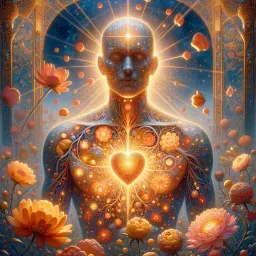It’s called a hustle, sweetheart

0
0
0
0
- Meaning
- The phrase emphasizes the importance of the hustle—defined not just as hard work but as strategic perseverance in the face of adversity. It alludes to a mindset that implies resilience and resourcefulness. Philosophically, it can relate to the concepts of individualism and self-reliance, suggesting that personal success is often the result of one's own efforts. Psychologically, it demonstrates a growth mindset, where challenges are viewed as opportunities to learn and grow. Historically, it connects to the American ethos of hard work leading to success, akin to the 'American Dream.'
- Allegory
- The image's elements resonate with the phrase by visually capturing the essence of hustle as a journey filled with opportunities and challenges. The sunrise symbolizes a new beginning and the potential for success, while the bustling city illustrates the external environment where ambition thrives. The runner represents the personal pursuit of goals, emphasizing action and determination. Friends cheering symbolize the supportive network that can accompany one on the hustle, balancing the individual drive with community strength.
- Applicability
- Individuals can apply this phrase in their personal lives by embracing a proactive attitude toward achieving their goals, whether in career advancement, personal projects, or general life ambitions. The idea encourages the willingness to put in extra effort and to see failure as a stepping stone to success.
- Impact
- The impact of this phrase on culture and society can be significant, as it reinforces the ideals of entrepreneurship and relentless pursuit of personal goals. It inspires movements aimed at financial independence, self-empowerment, and the hustle lifestyle, encouraging people to think creatively about their careers and ambitions. It is often quoted in motivational speeches, entrepreneurial literature, and social media posts.
- Historical Context
- While not directly attributable to a specific historical moment, the concept of the hustle has roots in the late 20th and early 21st century entrepreneurial culture, particularly with the rise of social media platforms that encourage self-branding and personal business ventures. This culture promotes the idea that success is accessible to anyone willing to work hard for it, often at the expense of traditional job paths.
- Criticisms
- Critiques of the hustle culture argue that it can foster burnout, unrealistic expectations, and an unhealthy work-life balance. Some may contend that focusing solely on hustle promotes a culture of overworking while neglecting mental health and well-being. Arguments against the phrase could include perspectives suggesting that a more balanced approach to work and rest is vital for true well-being and sustainable success.
- Variations
- Variations of this phrase present in other cultures might include concepts like 'La Dolce Vita' in Italian culture, which emphasizes enjoying life while also working hard. In Japanese culture, 'Ganbatte' echoes a similar determination to persevere through effort. While interpretations differ, the core message of effort towards success remains consistent.
-

It’s not until you lose everything that you can truly appreciate everything.
-

You don’t have to be perfect to be amazing.
-

The only way to get what you want in this world is through hard work.
-

It’s all part of the experience.
-

She warned him not to be deceived by appearances, for beauty is found within.
-

What can I say? I’m a rebel.
-

You have to try. You have to care.
-

Seize your moment.
-

Your identity is your most valuable possession. Protect it.
-

Now that’s what I call a party!
-

I think it’s time for a new adventure.
-

I’m bad, and that’s good. I will never be good, and that’s not bad.
No Comments